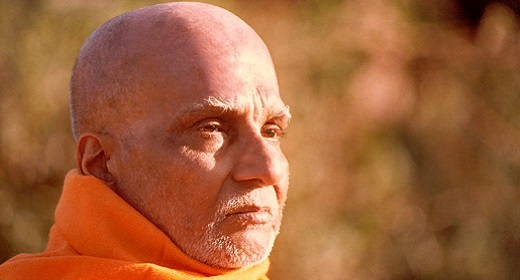by John Horgan: A sleepy philosopher inspires thoughts on how consciousness could endure forever…

Which is more fundamental, mind or matter? You would think, in our ultra-materialistic era, that debate would be settled. But a surprising number of philosophers and scientists still resist the idea that mind is a mere afterthought of matter. One is Bernardo Kastrup, a computer engineer and author of several books, including Why Materialism Is Baloney.
In “Should Quantum Anomalies Make Us Rethink Reality?”, recently posted by Scientific American, Kastrup contends that quantum mechanics—as well as cognitive science, which suggests that minds construct rather than passively mirroring reality–undermines the assumption that the physical world exists independently of our observations. He calls for a new paradigm that makes mind “the essence—cognitively but also physically—of what we perceive when we look at the world around ourselves.”
On Twitter, physicist Sean Carroll slammed Kastrup’s “bad article on quantum mechanics,” and science journalist Michael Moyer called it “voodoo.” That’s a bit harsh. Kastrup’s interpretation of quantum mechanics reminds me of that of the great physicist John Wheeler. Decades ago, Wheeler pointed out deep resonances between quantum mechanics and information theory. An electron behaves like a particle or a wave depending on how we interrogate it. Information theory, similarly, posits that all messages can be reduced to “binary units,” or bits, which are answers to yes or no questions.
Wheeler proposed that physics be recast in terms of information theory, an idea that he encapsulated in the phrase “it from bit.” He postulated in 1989 that “every it–every particle, every field of force, even the spacetime continuum itself–derives its function, its meaning, its very existence entirely–even if in some contexts indirectly–from the apparatus-elicited answers to yes-or-no questions, binary choices, bits.” We live in a “participatory universe,” Wheeler suggested, which emerges from the interplay of consciousness and physical reality, the subjective and objective realms.
Scientists and philosophers have proposed lots of other hypotheses that challenge strict materialism. They include “orchestrated objective reduction,” a quantum theory of consciousness invented by physicist Roger Penrose and anesthesiologist Stuart Hameroff; integrated information theory, which implies that consciousness suffuses the cosmos and is touted by neuroscientist Christof Koch; the reality-as-simulation hypothesis, entertained by Neil deGrasse Tyson; and the anthropic principle, which Sean Carroll espouses.
I have knocked these ideas, accusing advocates of narcissism, of projecting a human quality, consciousness, onto the entire cosmos. I snidely call this perspective neo-geocentrism (which still isn’t as bad as “voodoo”). But I understand why even non-religious folk balk at hard-core materialism, which depicts consciousness as an epiphenomenal fluke. If we are the only truly conscious creatures in the cosmos, and we perish, the universe will become dead, dark, meaningless. Without mind, matter doesn’t matter.
But I have thought of a way in which consciousness might be eternal, sort of, even if materialism is true. The idea came to me in the fall of 2015 when I was attending a workshop on integrated information theory at New York University. Toward the end of the meeting, I noticed that philosopher David Chalmers, an organizer, was nodding off. The man who called consciousness “the hard problem” was having a hard time remaining conscious! [See Response from Chalmers below.]
In the midst of my amusement, I remembered a recurrent exchange I have with my girlfriend, whom I’ll call Emily. When we’re lying in bed watching a TV show, like Game of Thrones, Emily declares, You’re sleeping! I respond huffily, No I wasn’t! You were snoring! she insists. Only when I cannot tell her what the dragon did in the last scene am I forced to accept that I was in fact sleeping.
Here’s why I refuse to believe her, at first. As soon as Emily says, You’re sleeping!, I wake up, and my mind splices my current awareness to my previous awareness, which preceded my nodding off. Subjectively, I lack awareness of sleeping, unless I was dreaming and remember the dream.
Watching Chalmers doze, and ruminating over these exchanges with Emily, my idea for eternal consciousness came to me. If mind emerged once in the cosmos, I thought, it will surely, over the course of eternity, emerge again. When it does, perhaps in some sense this new consciousness will be spliced together with the old consciousness, as if the intervening darkness never existed. So consciousness is subjectively if not objectively eternal. This concept might not be as comforting as “it from bit,” Christianity, Buddhism and other schemes that make mind fundamental, but it’s all I’ve got.
Disclosure: I met Bernardo Kastrup two years ago when we both spoke at a conference organized by alternative-medicine and spirituality mogul Deepak Chopra. I was a token skeptic at the meeting (along with Michael Shermer). Kastrup and I became pals, even though we disagree on the nature of reality (and of Chopra). If I befriended only those whose views I share, I wouldn’t have any friends.
Response from Chalmers: After I emailed this column to David Chalmers, he replied: “As it happens, Kelvin McQueen and I recently developed a theory of quantum consciousness that we had to reject on the grounds that the theory made it impossible to wake up from a nap! The idea was that states of consciousness can never enter quantum superpositions. It’s as if they are constantly being measured, so they always collapse onto definite states. But now the Quantum Zeno Effect tells us any state that is constantly being measured can never change. If one starts in a state of unconsciousness, then the moment any glimmer of consciousness might be about to emerge, the system will collapse back to a state of unconsciousness. So after a nap, one can never regain consciousness!”







































